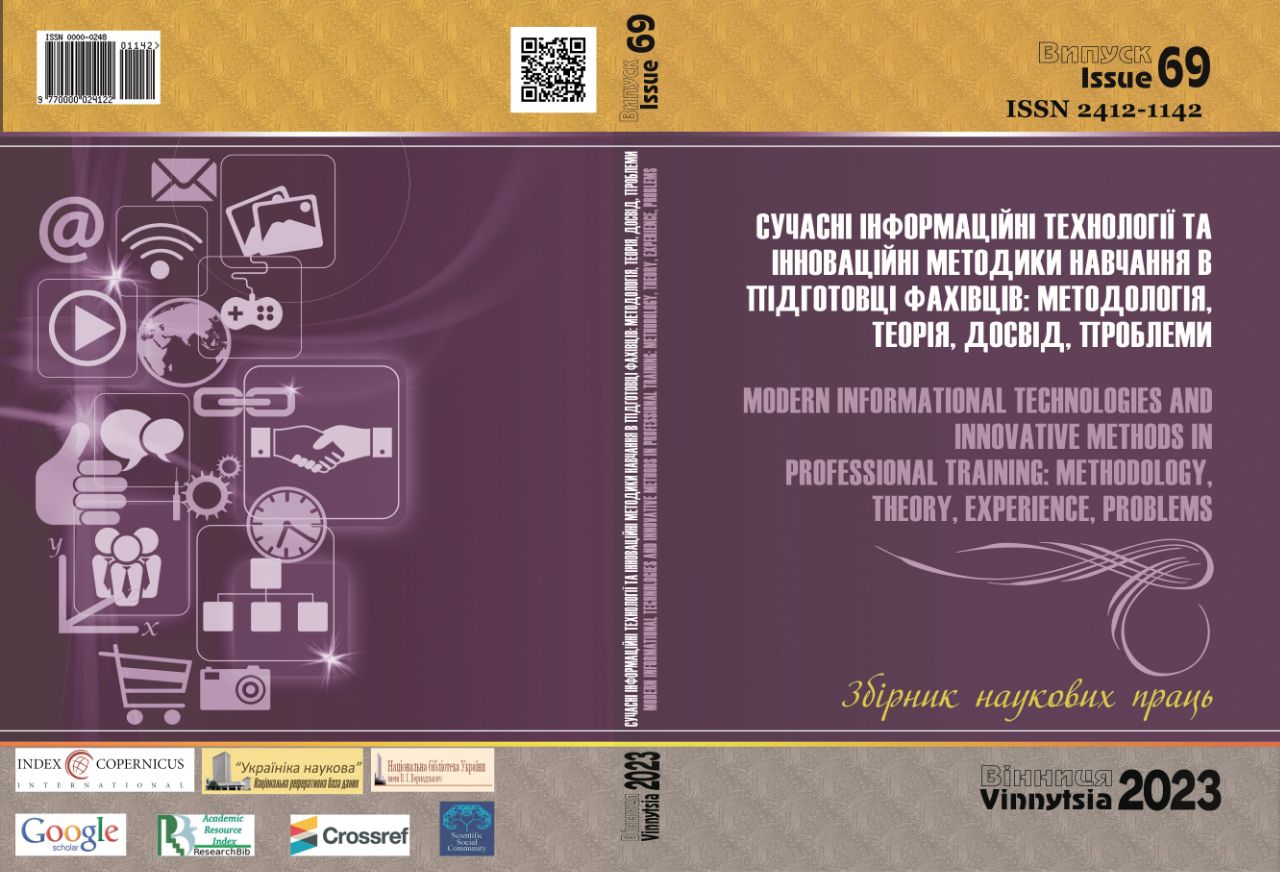SOCIAL COMPETENCE AND LANGUAGE EDUCATION IN THE TRAINING OF FUTURE SPECIALISTS
DOI:
https://doi.org/10.31652/2412-1142-2023-69-172-180Keywords:
social competence, language education, speech skills, rhetorical skills, polemical skills, nonverbal communication, future specialistsAbstract
It is impossible to imagine the modern educational process without a teacher as a carrier and transmitter of basic knowledge, as a person who exerts a significant influence on the formation of the worldview of young people, on their attitude towards themselves, the surrounding people and the world. The article focuses on some problems of language culture in the training of future specialists, because the communicative interaction of people takes place mainly in a verbal (verbal) form - in the process of language communication. The importance of non-verbal means of communication as a component of the speech culture of an individual for the communication process is substantiated, the necessity of using these means by the speaker for greater persuasiveness of speech and its positive impact on the interlocutor is emphasized. For a socially competent specialist, a specific sign system in non-verbal communication is eye contact, which is the main means of visual communication; gestures that testify to the honesty, openness, benevolence of a person; a smile, which is an integral element of public self-presentation. It is emphasized that a socially competent specialist, who adheres to generally accepted norms and uses all forms and means of communication, easily comes into contact with other people, based on positive communicative attitudes. The formation of students' social competence according to the communicativeactivity criterion was determined. Attention is drawn to the development of speech, rhetorical and polemical skills of future teachers. A series of test tasks was developed that made it possible to assess the development of students' speaking skills. Levels of speech accuracy associated with compliance with lexical and stylistic norms are determined; levels of formation of rhetorical skills of future specialists; levels of development of polemical skills: the ability to argue one's position, demonstrating a high level of discussion technique, the ability to refute the arguments of opponents, following the rules of conducting polemics, the ability to ask and answer questions.
Downloads
References
Бабич Н.Д. Основи культури мовлення. Львів: Світ, 1990. 226 с.
Бацевич Ф.С. Основи комунікативної лінгвістики: підручник. К: Академія, 2004. 342 с.
Бутенко Н.Ю. Комунікативна майстерність викладача: навчальний посібник. К.: КНЕУ, 2005. 329 с.
Герасимчук А.А., Тимошенко О.І. Етика й етикет сучасного бізнесу – запорука економічної безпеки
підприємств: Навч.посібник. К.: Вид-во Європейського у-ту, 2007. 285 с.
Московчук О. С. Формування соціальної компетентності студентів вищих педагогічних навчальних
закладів в умовах студентського самоврядування : дис. на здобуття наук. ступеня доктора філософії:
спец.. 011 «Освітні, педагогічні науки». Вінницький держ. пед. ун-т імені Михайла Коцюбинського.
Вінниця, 2020. 330 с.
Радевич-Винницький Я.К. Етикет і культура спілкування. Львів: СПО-ЛОМ, 2001. 220 с.
Стахів М. Український комунікативний етикет: навчально-методичний посібник. К.: Знання, 2008. 245 с.
Томан Іржі. Мистецтво говорити. К.: Політвидав, 1989. 293 с.
Хміль Ф. Ділове спілкування : навч. посіб. К.: Академвидав, 2004. 280 с.
Холковська І.Л. Технології формування загальнопедагогічної компетентності майбутніх учителів.
Сучасні інформаційні технології та інноваційні методики навчання у підготовці фахівців: методологія,
теорія, досвід, проблеми: Збірник наук. пр. Випуск 50. Київ-Вінниця: ТОВ фірма «Планер», 2018.
С. 405-409.
Шевчук С.В., Клименко І.В. Українська мова за професійним спрямуванням: підручник. К.: Алерта, 2011.
с.
Downloads
Published
Issue
Section
License
Copyright (c) 2023 Столяренко Олена Вікторівна, Столяренко Оксана Василівна, Московчук Ольга Сергіївна

This work is licensed under a Creative Commons Attribution 4.0 International License.





